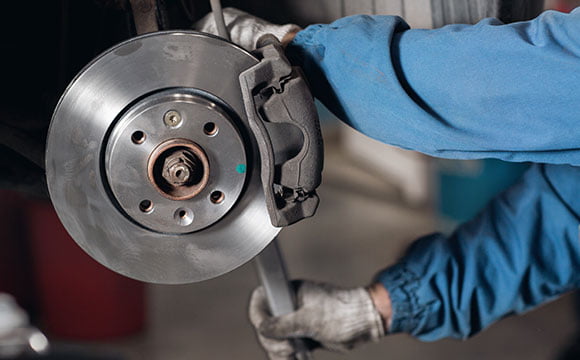The term OEM stands for “Original Equipment Manufacturer”, but this term can be used in different ways, as it is also related to vehicle manufacturers, it is used equally in relation to vehicle manufacturers, suppliers, and parts producers. We can make three different distinctions among manufacturers:

Vehicle manufacturers as OEM
In strategic supplier management in the automotive industry, manufacturers refer to themselves as OEMs. Automakers such as Audi, BMW, Opel, and Porsche are examples of OEMs. The vehicle manufacturer sits at the top of a supplier pyramid, with suppliers arranged horizontally below them at different levels, each documenting their relevance in the supply chain.
Original equipment manufacturer as OEM
An OEM supplies, for example, electronic components, tires, or brake components directly to the vehicle manufacturer’s plant. The components supplied by these OEMs are installed in the new vehicles produced at the factory. In this way, the vehicle manufacturer takes over part of the OEM’s sales, whose integrated products are not usually advertised separately.
Component manufacturer as OEM
The term is used in the automotive industry for manufacturers that serve the aftermarket with their automotive components. Therefore, these manufacturers do not supply the vehicle manufacturer for the production of new vehicles but sell their wear and spare parts on the open market. The sale is made under their own name or by means of an appropriate label. The statement “Original Equipment Quality” is often advertised here. De facto, this usually only means that the replacement parts are those that are not inferior to the originally installed parts in terms of shape and size.
Vertical integration and OEM
It is well known that there has long been a rethink in the quest for the greatest possible vertical integration. In other words: vertical integration in the plants of all vehicle manufacturers has been on the decline for decades. Tires, locks, brake components, electronic components – all these are no longer produced in-house but are supplied by specialized suppliers. This procedure brings tangible economic advantages for the vehicle manufacturer, but it also means that specialist competence is shifted to the suppliers.
OEM in the aftermarket
The quality of components in these OEMs often varies greatly because there are many manufacturers from low-wage countries with low-quality products on the market. Quality management, which is a matter of course for component manufacturers in industrialized countries, cannot be assumed for all aftermarket suppliers.
When spare parts are purchased outside the sales network of the automobile manufacturer, it actually means little more than that the shape and size of the components correspond to the original part used in the new vehicle. Therefore, the term OEM in the aftermarket does not guarantee the special quality of a component.
VYNMSA has strategic locations in the Bajio and northeast region of the country, close to the main automobile factories, ideal for companies looking to be their suppliers.
VYNMSA is one of the leading industrial real estate developers in Mexico. In addition, we are able to develop your Build To Suit or custom projects. We actively work with industrial real estate brokers as business partners, we have around 20 buildings of inventory ready for immediate occupancy, which adds up to around 2 million square feet of built space in the northeast and bajio region of Mexico.
Contact us and find out why VYNMSA is your best industrial real estate business partner in Mexico.
